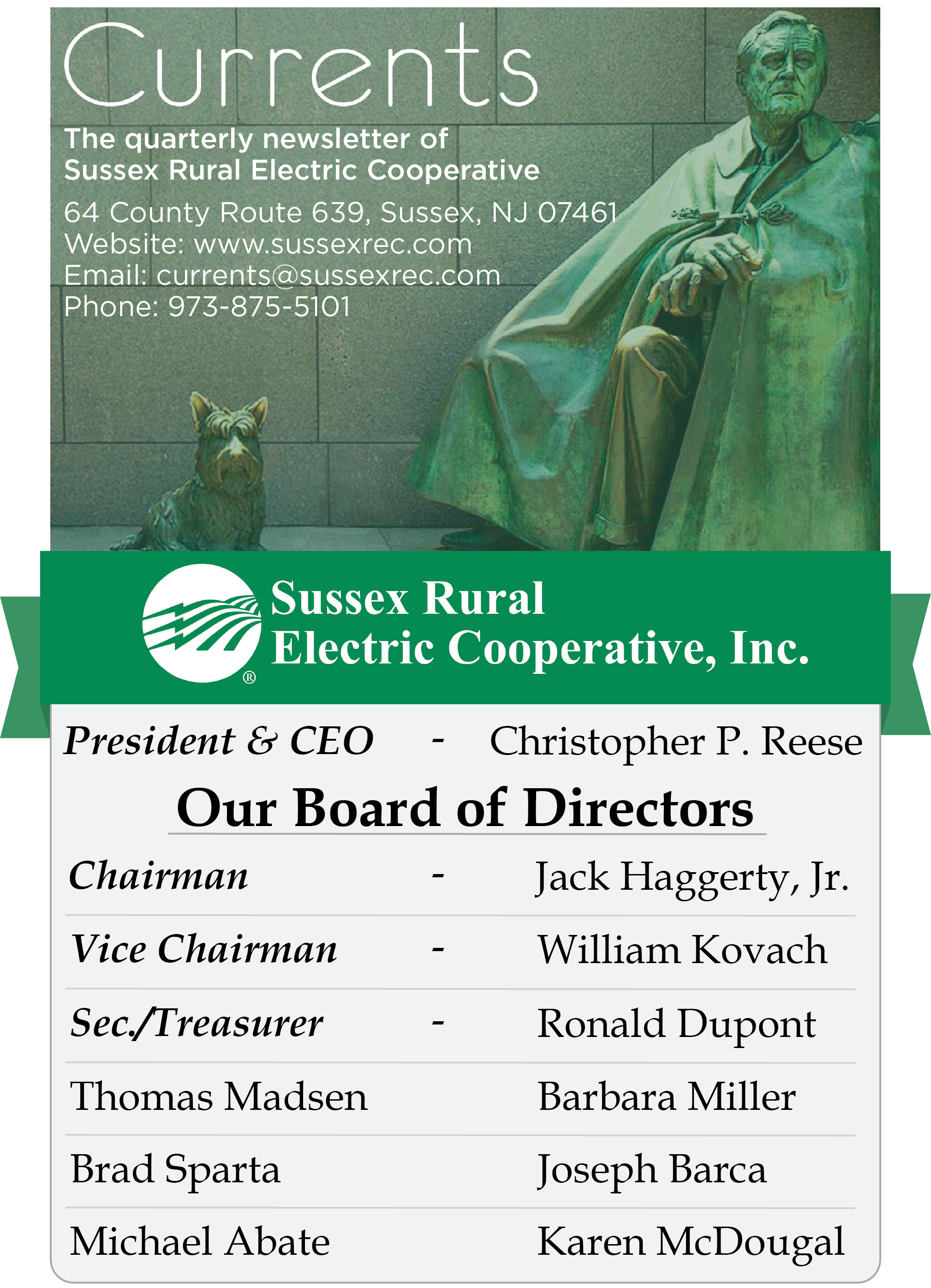To view the full print/pdf version of Volume 1, Issue 4 of Currents, click here
For previous issues of Currents, visit our Currents Library
This is a guest column from Steve Brame, President & CEO of Sussex REC's statewide association the Pennsylvania Rural Electric Assocation (PREA) and our power provider Allegheny Electric Cooperative. It was published with permission in Volume 1, Issue 4 of our newsletter Currents.
Working Together to Avoid Grid Disaster
By: Steve Brame
President & CEO, PREA/Allegheny
They say timing is everything. If that’s the case, recent environmental proposals have decidedly missed their mark. At a time when we are being asked to electrify much of our economy, from transportation to home heating, new U.S. Environmental Protection Agency (EPA) proposals are targeting the very resources we need to make this energy transition: our nation’s power plants. It’s not just bad timing. It’s a potential disaster.
We only need to be reminded of what happened last December during Winter Storm Elliott to understand the dire state of grid reliability. Nine states experienced rolling blackouts as the demand for electricity exceeded available supply. Nearly a quarter of the electric generation fleet in our region went offline.
Earlier this year, the EPA proposed sweeping new regulations to reduce emissions at new and existing power plants. Reducing emissions is a worthy goal, but the regulations rely on developing, yet-unproven technologies. While carbon capture and clean hydrogen show some promise, they are not ready or commercially available to the scale needed for power sector adoption. The proposed rules also contain timelines that are unrealistic and unachievable.
If implemented, these regulations would require unworkable standards at coal and natural gas-fired power plants. They will lead to premature plant closures — operators will shut facilities down instead of making expensive improvements — while also making it harder to permit, site, and build critical new facilities. The result would only add greater reliability challenges to an already-stressed electric grid.
Grid instability situations like we experienced last December will become more frequent if these new rules are put into place. According to the North American Electric Reliability Corporation (NERC), the disorderly retirement of existing generating assets across the country, and the insufficient replacement of that power capacity, is directly impacting reliability and increasing the risk of blackouts.
The EPA’s proposal is the wrong plan at a critical time for our nation’s energy future. It is unrealistic, unachievable, and will reduce key generating resources just as Americans are increasing their reliance on electricity.
Cooperatives want to be a part of the solution. That’s why we have been working together to address these concerns. Your local electric cooperative and others in the state, along with the Pennsylvania Rural Electric Association, the statewide association that represents your cooperative, and Allegheny Electric Cooperative, Inc., the power provider for your cooperative, have joined with our national organization, the National Rural Electric Cooperative Association, to make our concerns known to the EPA.
In letters, we’ve let the agency know these regulations could undermine the ability of electric cooperatives to provide affordable, reliable power to the communities and consumers we serve.
Working together. That’s been the formula for success for electric cooperative organizations for more than 80 years. It comes from a history of having to find solutions that work for the betterment of all.
That’s why we’re asking the EPA to work with NERC, the Federal Energy Regulatory Commission, regional transmission operators, and others in the electric industry, including electric cooperatives, to create standards that meet emissions-reduction goals without endangering the reliability of the grid. Working together, we can find solutions for the betterment of all.




